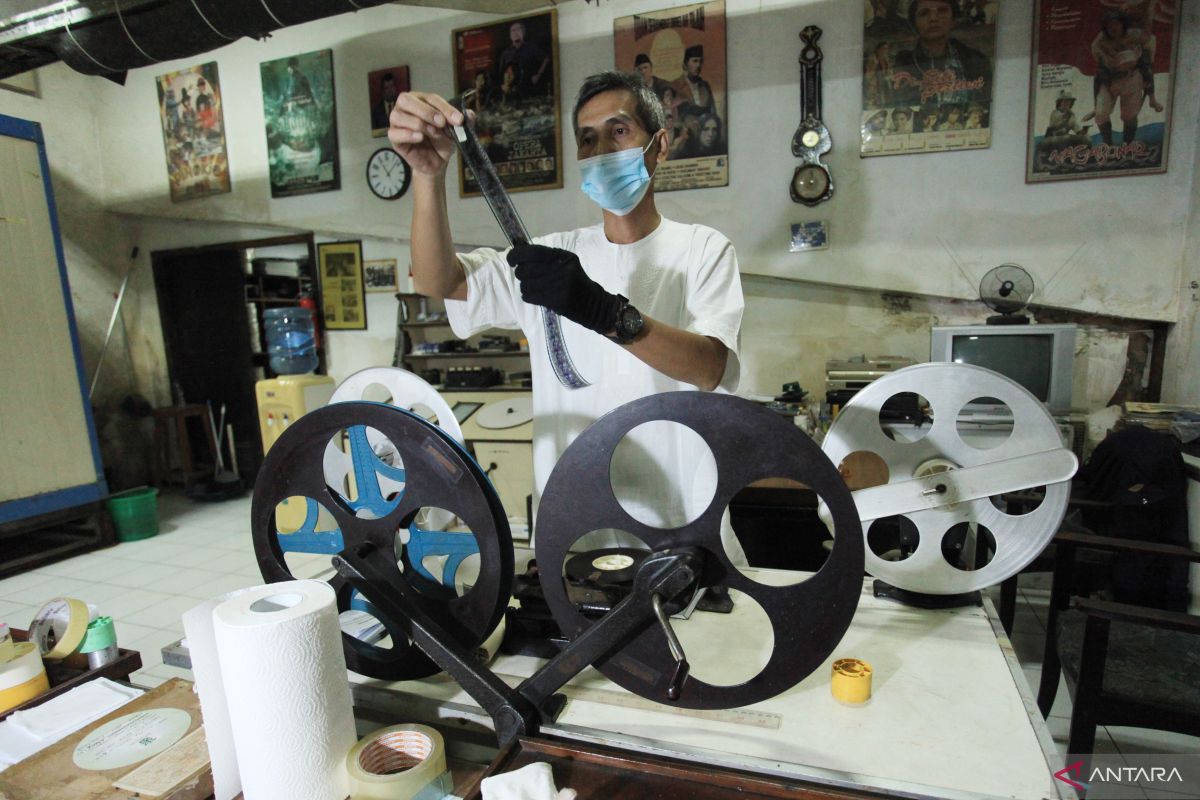I hope more women would partake in the film industryJakarta (ANTARA) - On March 30, 1950, film crew directed by Usmar Ismail, working for national film production company Perusahaan Film Nasional Indonesia (Perfini), commenced principal photography for “Darah dan Doa” movie, which was released internationally as "The Long March".
The movie was considered to be the first “national” Indonesian movie, and the first day of production had ever since been celebrated as National Film Day by the Indonesian cinema community.
"The Long March" movie, apart from being the first movie created entirely by Indonesians, was also successful in portraying the ideological thought that Indonesians are fighting for during their struggle for independence.
The production of the movie is a watershed moment in the history of cinema in Indonesia. Moreover, Usmar Ismail, who for long was recognized as the father of Indonesian cinema, was bestowed with the title of Hero of Indonesia in 2021, placing him at par with the greatest Indonesians, who had devoted their entire lives to the nation.
The National Film Day is not only a day to celebrate achievements in the Indonesian national cinema but also a day to retrospect that cinema is an art medium to retell and voice stances on popular and contentious issues – just like how Ismail did on his works.
Ismail's works, apart from The Long March and “Lewat Djam Malam” (“Six Hours in Jogja”, 1951), have put the spotlight on human rights and morality issues.
Related news: Government readies two aid schemes for film industry: Ministry
The face of Indonesian cinema, as reflected in the issues and themes of the movie, has become more diverse and bold from year to year. The number of Indonesian women partaking in the creative process of Indonesian movies has also gradually increased.
Earlier this year, “Nana” (“Before, Now & Then”, 2022), an Indonesian movie directed by Kamila Andini, had its world premiere at the 72nd Berlin International Film Festival on February 12. The movie was nominated for the Golden Bear Award, and actress Laura Basuki, who played Ino in the movie, won the Silver Bear for Best Supporting Performance Award.
Before “Nana”, we have also enjoyed Andini's other movie, “Yuni”, that was premiered at the 2021 Toronto International Film Festival and won the festival’s Platform Prize.
“Yuni” was screened on “A Window on Asian Cinema” programme during the 2021 Busan International Film Festival alongside “Seperti Dendam, Rindu Harus Dibayar Tuntas” (“Vengeance is Mine, All Others Pay Cash”, 2021) directed by Edwin, “Penyalin Cahaya” (“Photocopier”, 2021) directed by Wregas Bhanuteja, and short film “Laut Memanggilku” (2021) by Tumpal Tampubolon.
An increasing number of Indonesian movies that have achieved international recognition demonstrated that Indonesia’s cinema industry has been more inclusive and welcoming to all individuals keen to participate in the industry.
“Women play an important role in developing the Indonesian cinema ecosystem. Women are not merely a representation but also provide new perspectives and present an inclusive point of view,” Ministry of Education, Culture, Research, and Technology’s Director General of Culture, Hilmar Farid, stated.
Indonesian women have taken up roles in the national film industry as producers, directors, scriptwriters, as well as wardrobe and make-up artists. But what about other roles in the film industry?
Related news: 'Vengeance is Mine' symbol of film industry revival: Vice Minister
Ambassador of the 2022 Indonesia Film Festival actress Shenina Cinnamon, who had her lead role debut in “Penyalin Cahaya” (“Photocopier”, 2021), opined that men still dominate the film industry in proportion to women’s involvement in the industry.
“I believe that women can do more tasks (demanded by the industry). Usually, women are associated with make-up and wardrobe tasks, yet I believe women can also become the director of photography, sound engineer, and other roles,” Cinnamon stated.
She also reaffirmed her commitment to working with other women to create a safer creative workspace for actresses and women in the film industry in general.
More women have been interested to enroll in cinema studies, the actress pointed out while expressing hope that it could be an opportunity for women filmmakers to prove themselves as capable to create outstanding works.
“I hope more women would partake in the film industry,” she affirmed.
The “Penyalin Cahaya” movie tells the story of Sur (Cinnamon), who took matters into her own hands after compromising photos of her during a party that circulated online ruined her life despite her not having any recollection on the night's events, is highly relevant to the current situation that women are often facing, particularly in the film industry.
Related news: Road To Jakarta Film Week screens four thematic Indonesian movies
Moreover, actress Marsha Timothy, also an ambassador for the 2022 Indonesia Film Festival, said that safe spaces for women are a must in the film industry.
“Safe spaces for women in the national film industry must be a true friend for women. (Safe spaces) must hear (women’s concerns) without fear of judgement, must provide solutions and, if requested, advocacy in the legal avenue for sexual violence victims. Safe spaces must be promoted in the Indonesian film industry,” she remarked.
Timothy, who played the titular role in “Marlina the Murderer in Four Acts” (2017), expressed hope that Indonesian women filmmakers would also elevate more daring story themes that are closer and more relevant to the experiences of Indonesian women.
“If I were asked about the diversity (of film stories about women), I say despite it being diverse already, more themes and stories that voice women’s contents of the heart could be explored. Women’s themes and issues are not monotonous,” the actress stated.
Related news: Ministry: Investors in Indonesian films have become more varied
In Usmar Ismail's spirit, Indonesian filmmakers are eager to ensure that the creative process and inspiring stories could emerge from safe spaces for women.
Film producer and founder of the Studio Antelope production house Florence Giovani expressed hope that as more movies with local and relevant stories are published, more women filmmakers will feel safe working in the industry.
An inclusive and safe space is not only to create stories and films but also a medium to demonstrate that inspiring and sincere movies are emerging from truthful stories and honest sources.
We must ensure that honest stories, reflecting the filmmakers’ empathy, would illuminate theatre screens and evoke the viewers' emotions. Films must not be created in an unsafe environment for women that will stain the work despite its accolades.
Related news: Booster rule for exodus a precautionary measure: minister
Related news: Indonesia can enter endemic phase if health awareness rises: minister
Editor: Fardah Assegaf
Copyright © ANTARA 2022












